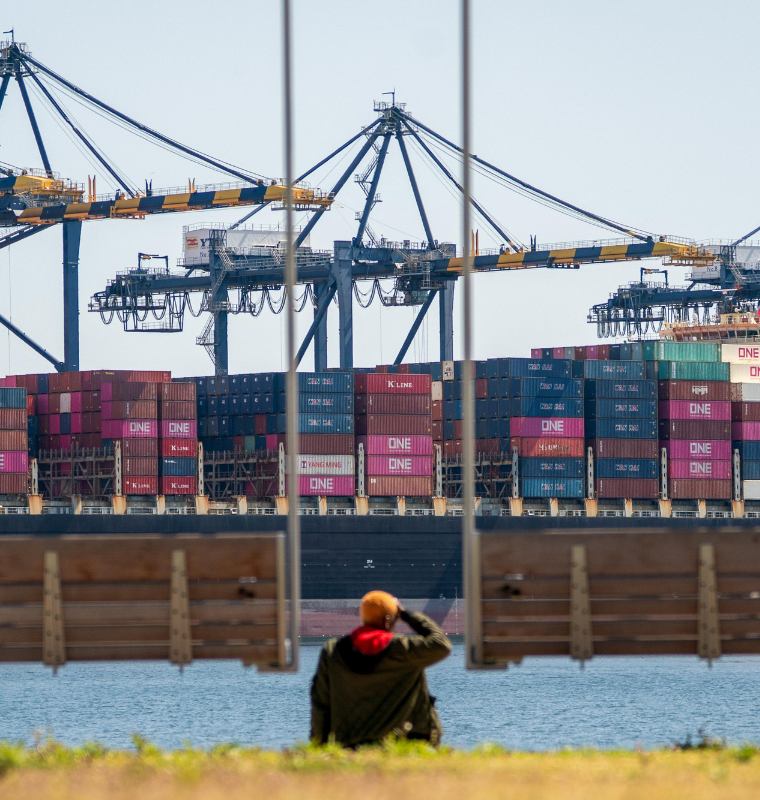Swiss-U.S. Trade Tensions Escalate as 39% Tariff Deadline Approaches
Swiss-U.S. Trade Tensions Escalate as 39% Tariff Deadline Approaches
By
Rachel Steinberg
Last updated:
August 5, 2025
First Published:
August 5, 2025

Photo: The New York Times
Switzerland is facing mounting anxiety as the deadline for a U.S. tariff agreement nears, with looming 39% duties on Swiss exports threatening to disrupt trade and economic stability. The unexpectedly steep tariff rate, announced last week under President Donald Trump’s latest trade policy, has caught many Swiss businesses off guard, escalating concerns across the country.
Background: Unexpected Tariff Increase and Failed Negotiations
Swiss exporters had anticipated a trade deal was imminent, with reports indicating that the agreement was awaiting Trump’s signature. However, the higher tariffs were imposed after a reportedly tense phone call last Thursday between Swiss President Karin Keller-Sutter and President Trump. Swiss officials have publicly rejected claims about the nature of the call, with Keller-Sutter noting via social media that no deal was reached.
Despite this setback, the Swiss government affirmed on Monday its commitment to ongoing negotiations with the U.S., even beyond the August 7 tariff implementation deadline. Authorities indicated plans to submit a more “attractive offer” that addresses American concerns, particularly by engaging with Swiss business sectors more closely. At this time, Switzerland is not considering retaliatory measures.
Market Reactions and Economic Outlook
Swiss equities reflected the tension, with the benchmark SMI index initially dropping by 1.7% on Monday after markets reopened post-national holiday. By mid-afternoon trading in London, losses had narrowed to 0.4%, signaling some investor resilience amid uncertainty.
U.S. Trade Representative Jamieson Greer tempered hopes for rapid resolution, stating in a recent interview that the current tariff levels are “pretty much set,” signaling limited room for immediate negotiation.
Industry Concerns: Potential Fallout for Swiss Economy
Business leaders warn the tariffs could severely disrupt Swiss trade flows and employment. Jan Atteslander, head of international relations at Economiesuisse, described the tariff announcement as “shocking” and emphasized the difficulty many companies would face absorbing a 39% levy.
Switzerland’s export markets remain heavily dependent on the U.S., making the threat of such tariffs particularly damaging despite diversification efforts. Key exports at risk include:
- Pharmaceuticals and chemicals
- Watches and jewelry
- Gold and chocolate
- Electronics and machinery
UBS analysts project a “negative but not destructive” impact on the Swiss stock market, with the hardest-hit sectors likely to be watchmakers, medtech firms, and smaller export-reliant businesses.
Economic Risks: Recession Fears and Monetary Policy Pressure
Senior economist GianLuigi Mandruzzato from EFG Asset Management highlighted the growing risk of recession, noting that U.S. tariffs could affect up to 10% of Switzerland’s GDP. The tariffs could exacerbate deflationary pressures already challenging the Swiss economy and complicate the Swiss National Bank’s efforts, which include maintaining near-zero interest rates to support inflation and counter the strong Swiss franc.
Future Prospects: Can a Deal Still Be Reached?
While Swiss officials remain hopeful and continue to work on enhanced proposals, the outcome remains uncertain. Atteslander described the situation as “totally open” with respect to whether the government can secure a better agreement before the August 7 deadline.
Potential bargaining chips could include increased Swiss purchases of U.S. energy products or greater direct investment in the U.S. economy. However, Mandruzzato warned that the negotiations largely hinge on President Trump’s preferences, making the final terms difficult to predict.
With the clock ticking, Switzerland faces a critical moment that could reshape its trade relations with the U.S. The outcome will significantly impact Swiss exporters, markets, and the broader economy. Businesses and policymakers alike are bracing for both the economic consequences of tariffs and the hope for a negotiated resolution that could preserve vital transatlantic trade ties.
Popular articles
Subscribe to unlock premium content
Merch, Meals, and Memories

Innovating One Feature at a Time

Zero Taxes, Maximum Attraction – Why Monaco is the ultimate playground for the wealthy.

Merch, Meals, and Memories

Innovating One Feature at a Time

Merch, Meals, and Memories







.png)

